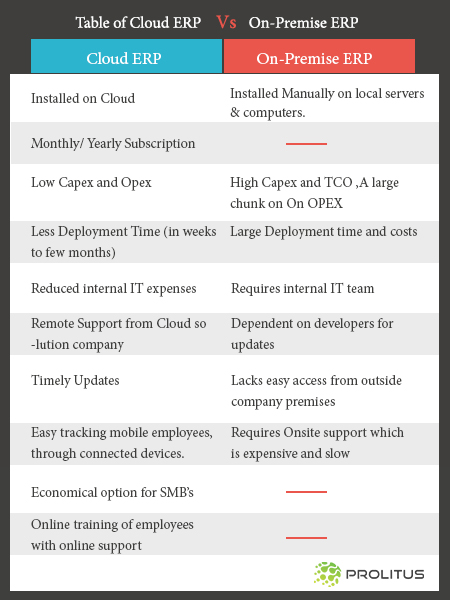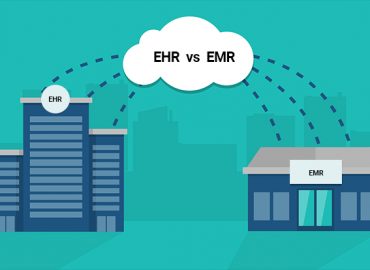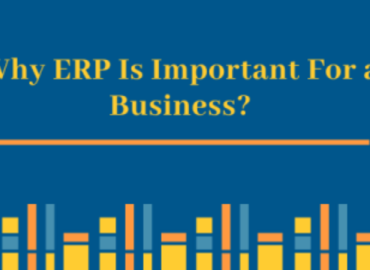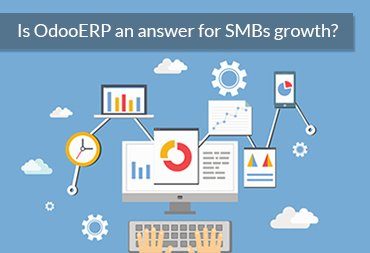Cloud Applications, offered on SaaS model has been prevalent for quite some time now. This can be concluded by the IDG Cloud Computing Survey 2015 which states that 72% of the organizations use one or more application based on cloud computing infrastructure, with 16% planning to go for cloud applications in next 12 months. This brings the total no of organizations interested in Cloud-based applications to 88%.

It’s a fast, agile and dynamic way to manage enterprise data on a real-time basis. This has specifically transformed the manufacturing and logistics industry where it complements the mobile nature of the business and employees. The data on the cloud can be accessed from anywhere using simple web/mobile browsers or mobile app. This helps in streamlining the operations tremendously. ERP (Enterprise Resource Planning) software on the cloud encompasses all these benefits of cloud infrastructure to improve decision making and operations.
Traditionally, the software has been implemented as an offline client/server architecture with on-premise installation. Now cloud-based software is surpassing this trend as it leads to reduced Capex and Opex and increased operational efficiency.
For example, our team at Prolitus designed a cloud-based ERP solution for a leading toy manufacturer of India, Ok Play. OK, Play wanted a solution to connect the backend processes with an eCommerce store and multiple retain outlets across multiple cities.
Prolitus created an eCommerce platform using Magento for the web interface and Android & iOS mobile apps. The cloud-based ERP to manage backend processes and POS solution for retail outlets were designed using Odoo ERP. The solution helped OK Play to manage all the customers and orders from one place. The dashboard showed consolidated management reporting for quick decision making and real-time monitoring. For complete case study, click here.
Let’s look at reasons why Cloud ERP is a better option by comparing with On-Premise ERP.

Business Solving Nature of Cloud ERP
In today’s competitive times, businesses need to be agile with ready access to information. A cloud-based ERP offers distinct advantages to businesses to effectively and efficiently compete:
- Ability to monitor business operations in real time.
- Access to critical business information anywhere, anytime, on any device on a secured network.
- Scaling ability in accordance with market trends, up or down, to meet the market or business needs.
- Collaborative tools to improve collaboration with customers, employees, suppliers and partners.
- Integration with other applications and systems smoothly.
- Easy maintainability.
Security Concerns with Cloud ERP
Even after the significant growth and rising preference over Cloud ERP, some big companies are reluctant to switch. The main reason is the need for security and control over data along with customization. Also, because they have the funds to meet these requirements which aren’t the case with SMB’s. This the prime reason that they haven’t merged with the trend, yet.
Here Private Cloud provides an alternative which fuses the advantages of both Cloud and On-Premise ERPs. In a Private Cloud, the company has more control of data and optimal security. But it comes at a significant cost. Owing to this, now Hybrid cloud infrastructure is becoming popular.
According to RightScale2016StateoftheCloudReport, most of the enterprises and SMB’s prefer Hybrid cloud infrastructure over private or public cloud network. This trend has seen a significant growth in 2016 and has reached to 71% in number.

In a Hybrid setup, the most critical assets are kept on Private cloud and less critical assets are kept on Public cloud leading to optimized cost and security.
Have doubts about which kind of ERP would sustain your business needs? To know more, or get consultation.





